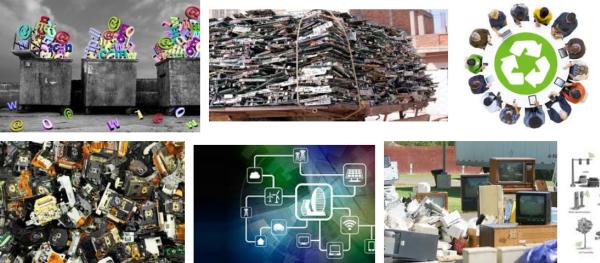A too often forgotten problem with the Internet of Things
There is a good article at Medium about “Ethical Electronics”, that is the need for a MUCH more environmentally responsible design of the Internet of Things (IoT). The most relevant parts, which say everything but one thing, are these:
- “We buy and throw away more electronics than ever, with consequences that extend well beyond those products’ increasingly short life cycles”
- “The manufacture of electronic products uses resources at alarming volumes… Production of a single smartphone, for example, requires 18 square meters of land and nearly 13,000 litres of water.”
- [But] “when we tire of them, the planet feels the impact again. We’re generating more waste than ever before (e-waste doubled between 2009 and 2014), and disposing of much of it illegally (up to 90%, according to the UN)”.
The article proposes as solutions “new business models”, not based on ownership and sales" and “software upgrades”:
- “rather than selling light bulbs, Philips is experimenting with selling light as a service. Philips retains ownership of — and responsibility for — the physical products, so they have a direct incentive to make them efficient.”
- For smart devices that offer a cloud service or software connected to a physical product, the opportunity is even greater. Much of their value is in the software, whether on-device, or “in the cloud,” so a service upgrade effectively refreshes the product without any physical replacement, and all the waste that goes with it.
Everything (OK,almost everything) that can reduce the amount of energy and physical waste we produce today while calling it “business” or “innovation” is good. But the big, missing thing from this picture is that they can work as advertised, instead of backfiring spectacularly, on a couple of things. One has nothing to do with electronics, or the Internet of Things in general, and is responsible procurement and contracts. The day in which Philips gains ownerships of all the lamps of a city is the day when Philips has an excellent incentive to make long lasting lamps, so they can charge whatever they want for them, for longer periods. Unless the city protected itself with clauses like “you can’t raise fees more than inflation, otherwise lamps ownership passes to us”. But…

This is what stuff like light-as-a-service really looks like after a few years, unless it was done with OPEN hardware and software
</em></u>
An IoT-specific, even more crucial issue is that all this stuff can work as advertised only if it is made with Open Hardware or, as a minimum, be designed to be really interoperable via really Open Standards. Otherwise, a city (but the same applies to any single household) could:
- in the short/medium term end up spending more to just make different systems (lights, traffic monitoring, pollution, whatever) talk to each other. Unless it completely surrenders from day one to just ONE corporation selling “integrated solutions”
- in the long term, when (not “if”: when) the manufacturer of some device or platform goes out of business, or starts demanding too much, the same city end up with a mountain of hardly recyclable junk that is as interoperable and -software-upgradable" as a Betamax recorder. Unless all that hardware, and all the related software, came with full documentation and legal permission to use and customize it without restrictions
Who writes this, why, and how to help
I am Marco Fioretti, tech writer and aspiring polymath doing human-digital research and popularization.
I do it because YOUR civil rights and the quality of YOUR life depend every year more on how software is used AROUND you.
To this end, I have already shared more than a million words on this blog, without any paywall or user tracking, and am sharing the next million through a newsletter, also without any paywall.
The more direct support I get, the more I can continue to inform for free parents, teachers, decision makers, and everybody else who should know more stuff like this. You can support me with paid subscriptions to my newsletter, donations via PayPal (mfioretti@nexaima.net) or LiberaPay, or in any of the other ways listed here.THANKS for your support!